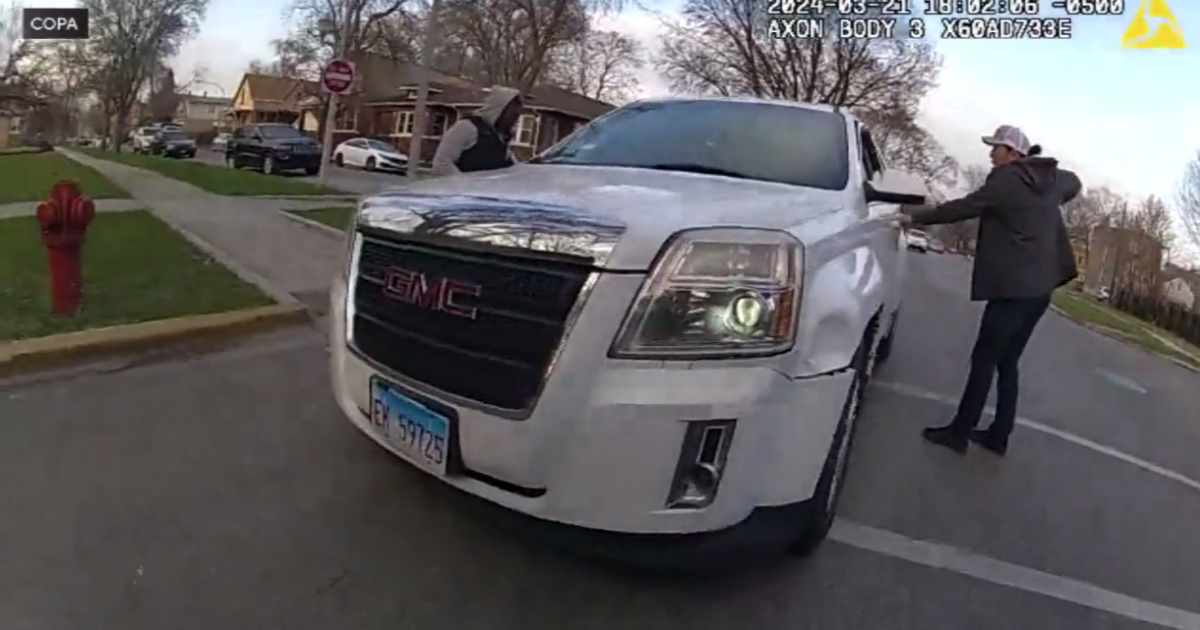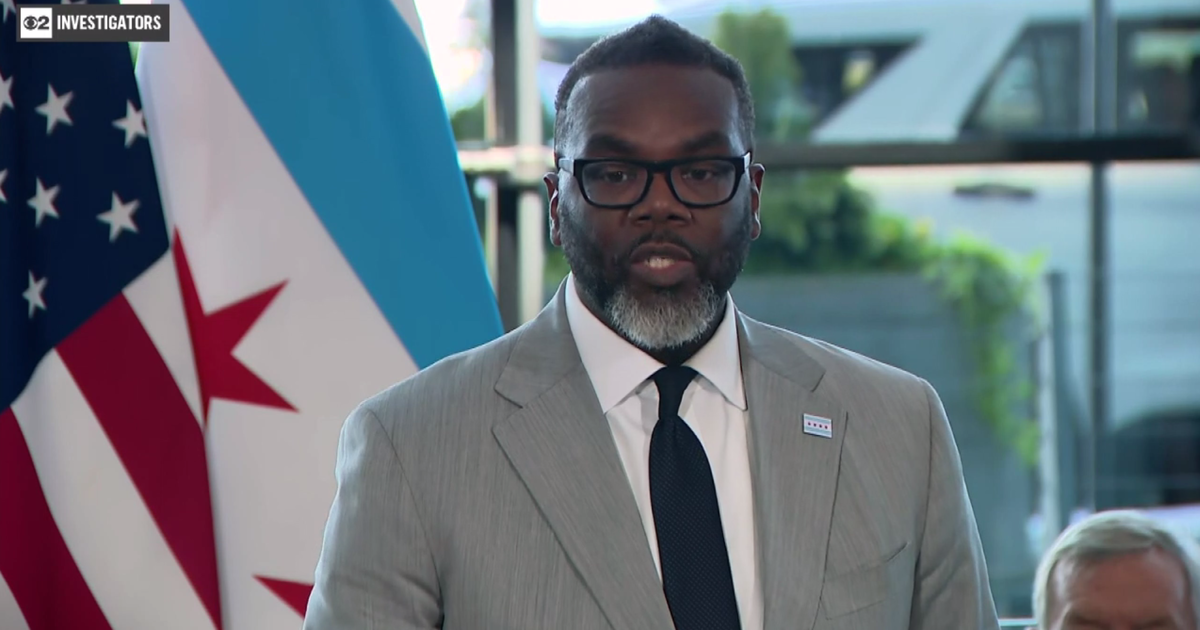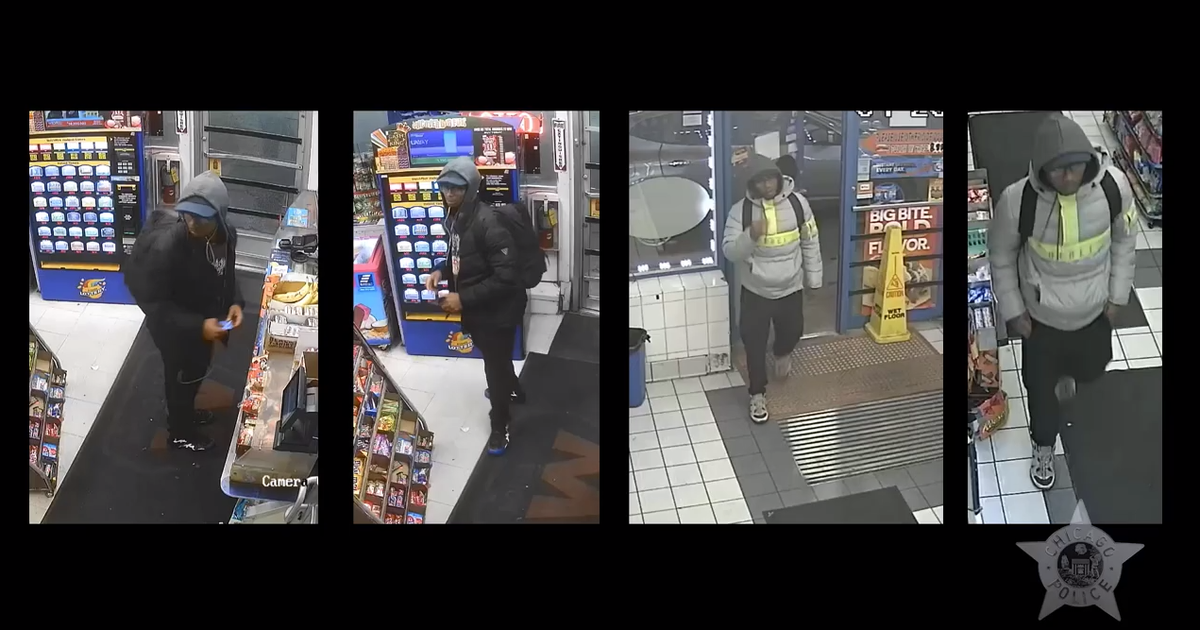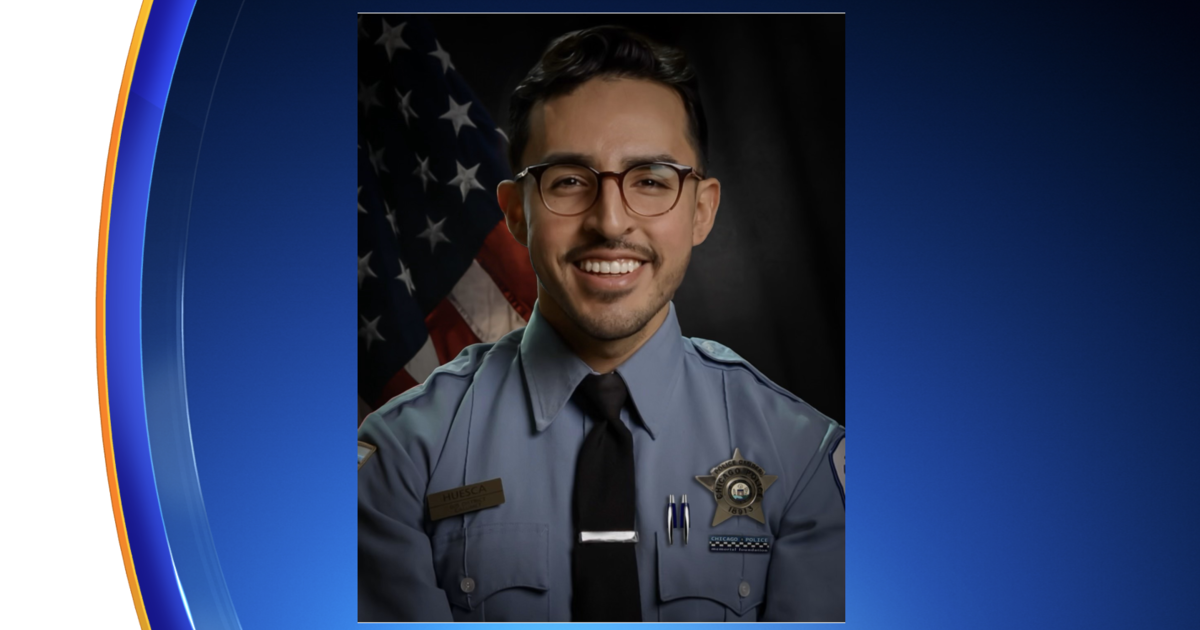Chicago Police Announce Path Forward In Fulfilling Consent Decree, But Do Not Address Complaints About Missed Deadlines
CHICAGO (CBS) -- The Chicago Police Department on Monday announced a path forward to fulfill a federal consent decree that took effect last year, just two months after the Illinois Attorney General's office recently complained that the department had failed to meet the majority of deadlines.
The new plan also comes after reporting by CBS 2 Investigators on wrong raids by Chicago Police led to consent decree lawyers sending an enforcement action letter demanding that the bad raids stop and significant reforms be made.
If the CPD fails to comply, the lawyers are threatening to send the department back to federal court.
Police on Monday announced a Consent Decree Priority Plan, which they said will streamline priorities in fulfilling the consent decree for the rest of 2020. The department said the plan prioritizes outstanding projects and requirements and the city's plan for compliance.
In a news release, police said since the consent decree went into effect in March 2019, the Police Department has made significant progress on several reforms – including an increase of in-service training and mental health support for officers, updated use-of-force policies, de-escalation and officer safety, and a new approach toward community engagement.
"Using the new Priority Plan, we will prioritize our efforts and resources in the areas that will have the greatest impact on the communities we serve along with our Department, and to most likely achieve significant progress before the end of the next monitoring period," CPD Deputy Superintendent Barbara West, who leads the CPD Office of Constitutional Policing and Reform, said in a news release.
The department also announced it has launched a Consent Decree Compliance Dashboard – which displays the compliance status of 146 paragraphs in the decree that have been fully assessed by the Independent Monitoring Team.
The dashboard indicates preliminary or secondary compliance has been achieved with 63 of the 146 paragraphs in the decree that have been fully assessed by the monitors in the first year – a total of 44.68 percent.
Police did not address the fact that the department has been taken to task repeatedly for failing to meet deadlines in fulfilling the consent decree. In the first report to the monitors for the decree in November, the city had missed more than half its deadlines to implement the rules. The same was true seven months later.
As of June, there were 35 deadlines met, but also 89 missed deadlines. In all, 71 percent of the deadlines were missed.
"What we've seen is a pattern of foot-dragging and delaying on behalf of the city. Sadly even with the change in administration, we haven't seen a fundamental change in orientation toward the decree. It's still more about kicking and screaming as opposed to, 'How do we embrace the decree to do better?' Indeed, they haven't just missed 50 percent, but they missed more than about three quarters of the deadlines," Craig Futterman, a civil rights attorney and professor of law at the University of Chicago specializing in police accountability, told CBS 2's Brad Edwards and Jim Williams in June.
Futterman is one of the lawyers who successfully fought to get the consent decree and sent the latest enforcement action related to the wrong raids.
Later in June, speaking to CBS 2's Ryan Baker and Audrina Bigos, West defended the department's record in fulfilling the decree.
"So you think about how reform takes place, and reform is not going to be done overnight," West said in June. "With what I've seen in terms of the deadlines being missed, you know, we did make some significant accomplishments in things that we've put in place CPD. We've hired more mental health physicians, we've begun to engage the community in our policy development. We've revised our use of force policies, which clearly prohibited choke holds, and less deadly force is used. So, we're not doing a slow roll, but we're doing a concerted effort working with our monitor, working with the OAG [Office of the Illinois Attorney General] and taking a thoughtful approach to how we redevelop our policies, which is the foundation of our reform efforts."
A scathing Justice Department report in 2016 had found systemic abuses by the Chicago Police Department against minorities, including officers routinely using excessive force against Black and Latinx individuals.
The Justice Department report called for the courts to oversee changes to the department's policies and practices. When the Trump administration balked at the idea of a consent decree, then-Illinois Attorney General Lisa Madigan filed a lawsuit against the Chicago Police Department and hammered out a deal with the city.
Futterman's coalition also filed suit, representing community groups impacted by police actions.
Among other changes, the consent decree requires the department to review use of force policies every year, track foot pursuits and document every time an officer points a gun at someone. Anonymous complaints against officers must be investigated; and officers are prohibited from using stun guns when suspects are running away, or from firing their guns at moving vehicles.
Use of force training and training on verbal de-escalation tactics were also to be expanded.
Meanwhile, CBS 2 Investigator Dave Savini's reporting has led to a 14-page enforcement action letter by the team of lawyers who were instrumental in developing the decree. The letter demands the department stop its pattern of "abusive" search warrant tactics, or the team will take the city to back to federal court.
The lawyers sent the demands last week to the city, the state Attorney General's Office, the City Inspector General, and the team monitoring the federal consent decree. It outlines specific demands and repeatedly cites CBS 2's years-long investigation that exposed critical failures in every step of CPD's search warrant process. The reporting also uncovered how CPD's tactics disproportionately affect Black and Latinx communities.
The scathing enforcement action criticizes how, in more than a dozen cases uncovered by CBS 2, officers failed to do basic checks on tips from confidential informants before obtaining and executing search warrants on homes. The letter uses these cases to demonstrate how police then raided the wrong homes, using force by pointing guns at innocent families and children, and traumatizing them.
[scribd id=471487009 key=key-xow7mNCIanwqmF5bfHkc mode=scroll]
CBS 2 found dozens of victims, some of whom are now suffering from PTSD as a result. In one case, an 8-year-old was handcuffed for more than 30 minutes. In others, parents were handcuffed in front of their children.
One family was wrongly raided three times in four months, and the children were captured on body camera video begging police not to shoot them.
"They had guns to our faces," 14-year-old Savannah said.
Every family CBS 2 interviewed is Black or Latinx.
The Coalition behind the enforcement action is comprised of Futterman; Sheila Bedi, an attorney with the Bluhm Legal Clinic and professor at Northwestern's Pritzker School of Law; and Karen Sheley, director of the ACLU of Illinois Police Practices Project.
The group has the authority to demand reforms as they've done with the new enforcement action, and can take them back before the federal judge too.
"You can't have this, a consent decree in Chicago that's supposed to address patterns and practices of police violence, and then the same old thing keeps going on," Futterman said. "You are violating this decree, you are violating the Constitution. You're violating the law. Stop."






